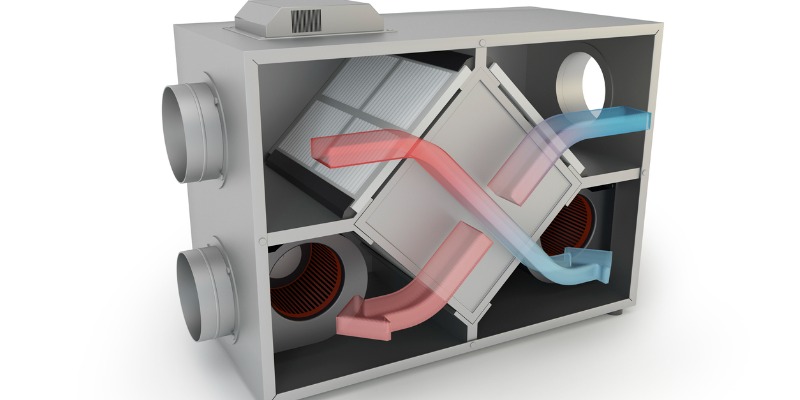
When you look for HRVs or ERVs online, then you’ll usually notice different HVAC companies only talk about one or the other. That’s because HRVs are a better option in one climate and ERVs are a better option for another one, and few companies work in both. Here, we’ll shed some light on these ventilation systems by actually comparing them and explaining them. We’ll also tell you why HRVs are the better option in Ontario.
What is an HRV?
An HRV is a heat recovery ventilation system. It is essentially a whole-home fan with an extra step. Instead of just sending out the old air and bringing in new air, this system also controls heat. In the winter, it will remove heat from the outgoing air, and add that heat to the incoming air. The benefit is that you can get much stronger ventilation without worrying that it will negatively impact your home’s energy efficiency. That means you can have better air quality, so your home feels less stuffy even in the winter.
What is an ERV?
An ERV is like a whole-home fan with two extra steps. Not only does it control heat like an HRV system does, but it also controls humidity. The difference between an HRV and ERV is simply that: an ERV also takes the humidity out of the outgoing air and puts it into the incoming air. This is a great help for those in dry, warm climates where they need to maintain the level of humidity in their home carefully.
Which is Right in Ontario?
HRV vs ERV in a cold climate is relatively clear. For most homeowners in Ontario, an HRV is a better solution because it is better suited for the winter. If you’re using an ERV in your Ontario home over the winter it is possible that it will create humidity issues that could promote bacteria, mould or fungus growth in the home. This is even more true the more energy-efficient your home is. It will retain moisture better if there are fewer gaps and cracks through which air escapes.
Interested in learning which option is best for your home? Contact our experts today.
What If You Want Humidity?
For sure, many homeowners find that their home is far too dry in the winter. It is better to use a home humidifier to manage your humidity issues in the winter instead of an ERV. You don’t want to need to turn off your ventilation system if your humidity levels get too high. This is especially true in our climate as it is so variable, we can have hot wet summers where ERVs help, but usually HRVs provide the most benefits on a year-round basis.
That said, there could be a good reason that your home needs an ERV. An HVAC technician can help you make that decision.
Are you looking to get more information on HRV or ERV systems for your home? You should reach out to the team at D&B ClimateCare today. We can help.





